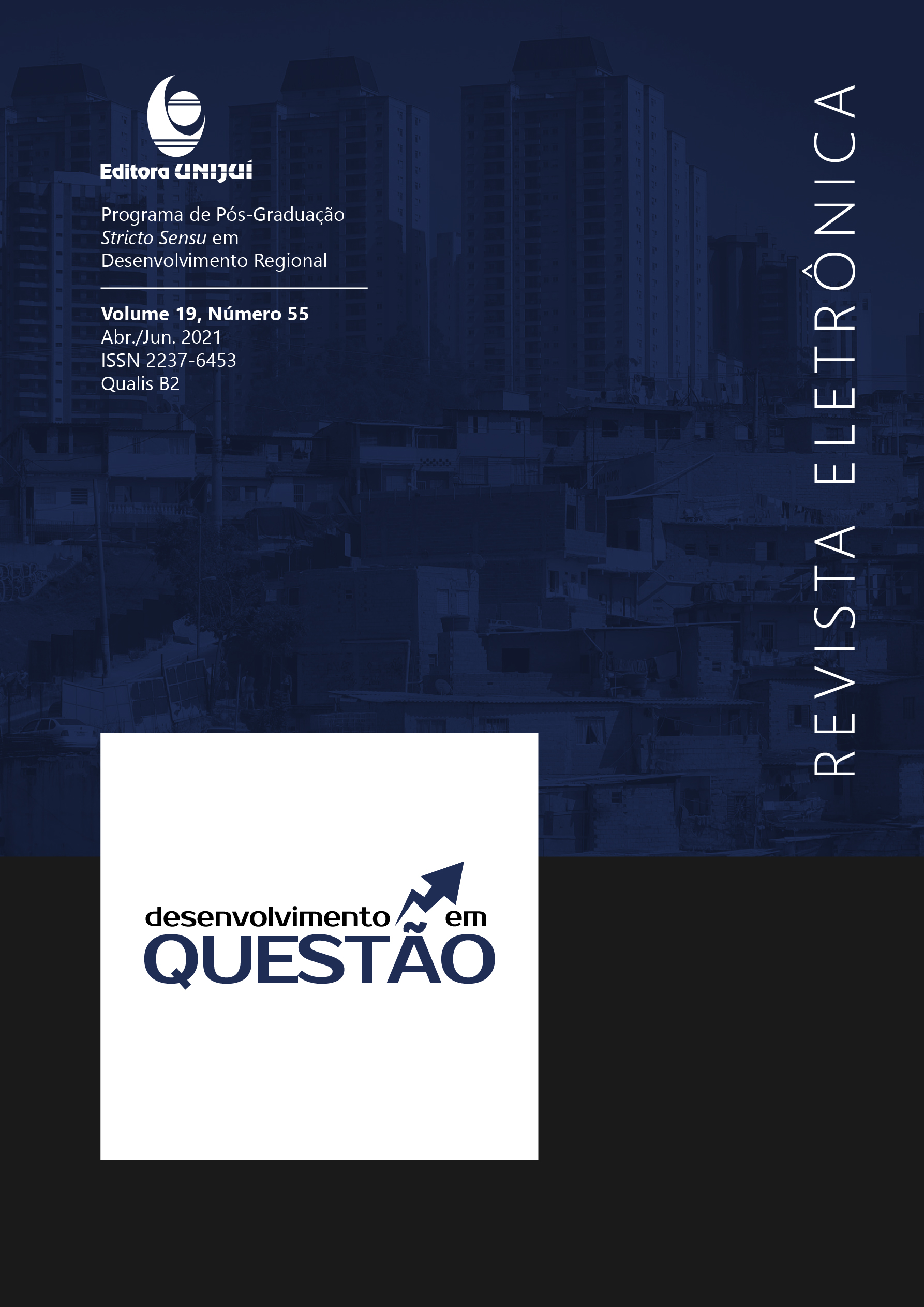Redes de Colaboração para Promoção de Coleta Seletiva com Inclusão Social de Catadores de Materiais Recicláveis: Cenários de Articulação em São Carlos-SP
COLLABORATIVE NETWORKS FOR SELECTIVE COLLECTION PROMOTION WITH SOCIAL INCLUSION OF RECYCLABLE WASTE PICKERS: ARTICULATION SCENARIOS IN SÃO CARLOS-SP
DOI:
https://doi.org/10.21527/2237-6453.2021.55.10937Palavras-chave:
Cooperativas de Catadores de Materiais Recicláveis, Coleta Seletiva, Redes de colaboraçãoResumo
As políticas públicas municipais de resíduos sólidos não têm acompanhado as proposições da Política Nacional de Resíduos Sólidos e os catadores de materiais recicláveis, comumente alinhados a princípios da economia solidária, encontram dificuldade em se inserir nos projetos de coleta seletiva. Considerando que a articulação de apoiadores em rede pode contribuir para superar essa problemática, objetiva-se caracterizar as iniciativas de apoio ao programa de coleta seletiva de São Carlos-SP e à Cooperativa de Trabalho de Catadores de Materiais Recicláveis de São Carlos-SP (Coopervida) e identificar suas estratégias de articulação. Realizou-se revisão bibliográfica e análise documental e as informações foram sistematizadas em quatro cenários de análise. Observou-se a ocorrência de diversas estratégias de articulação em rede, que contribuíram para o desenvolvimento do programa de coleta seletiva e manutenção da Coopervida, bem como a presença de instituições vinculadas à economia solidária em todos os cenários. O município ainda precisa avançar no estabelecimento de políticas públicas de resíduos sólidos com participação popular.
Downloads
Publicado
Como Citar
Edição
Seção
Licença
Ao publicar na Revista Desenvolvimento em Questão, os autores concordam com os seguintes termos:
Os trabalhos seguem a licença Creative Commons Atribuição 4.0 Internacional (CC BY 4.0), que permite:
Compartilhar — copiar e redistribuir o material em qualquer meio ou formato;
Adaptar — remixar, transformar e criar a partir do material para qualquer fim, inclusive comercial.
Essas permissões são irrevogáveis, desde que respeitados os seguintes termos:
Atribuição — Atribuição — os autores devem ser devidamente creditados, com link para a licença e indicação de eventuais alterações realizadas.
Sem restrições adicionais — não podem ser aplicadas condições legais ou tecnológicas que restrinjam o uso permitido pela licença.
Avisos:
A licença não se aplica a elementos em domínio público ou cobertos por exceções legais.
A licença não garante todos os direitos necessários para usos específicos (ex.: direitos de imagem, privacidade ou morais).
A revista não se responsabiliza pelas opiniões expressas nos artigos, que são de exclusiva responsabilidade dos autores. O Editor, com o apoio do Comitê Editorial, reserva-se o direito de sugerir ou solicitar modificações quando necessário.
Somente serão aceitos artigos científicos originais, com resultados de pesquisas de interesse que não tenham sido publicados nem submetidos simultaneamente a outro periódico com o mesmo objetivo.
A menção a marcas comerciais ou produtos específicos destina-se apenas à identificação, sem qualquer vínculo promocional por parte dos autores ou da revista.
Contrato de Licença (para artigos publicados a partir de 2025): Os autores mantêm os direitos autorais sobre seu artigo, e concedem a Revista Desenvolvimento em Questão o direito de primeira publicação.











